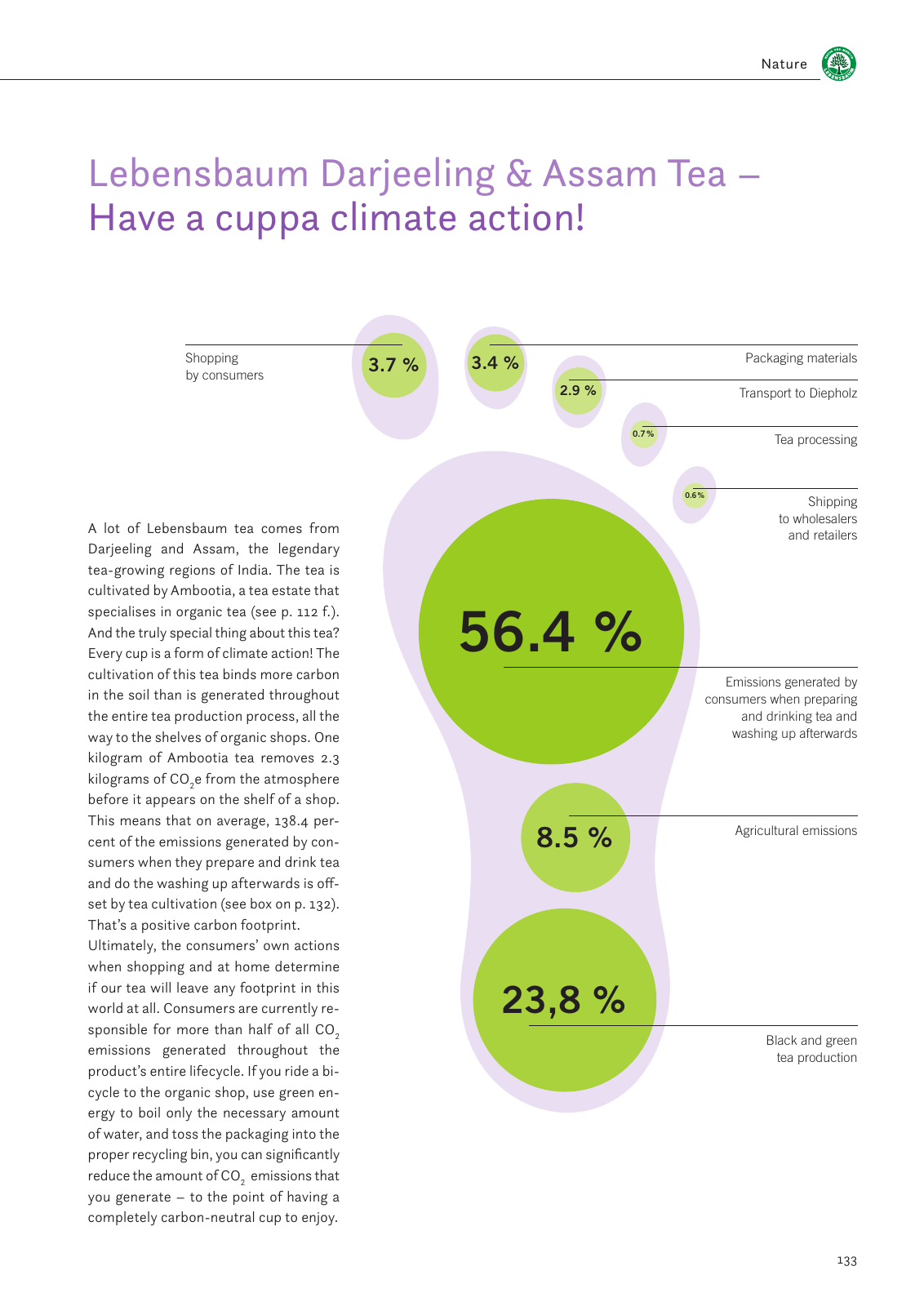133 56 4 8 5 23 8 3 7 2 9 3 4 0 6 0 7 Nature A lot of Lebensbaum tea comes from Darjeeling and Assam the legendary tea growing regions of India The tea is cultivated by Ambootia a tea estate that specialises in organic tea see p 112 f And the truly special thing about this tea Every cup is a form of climate action The cultivation of this tea binds more carbon in the soil than is generated throughout the entire tea production process all the way to the shelves of organic shops One kilogram of Ambootia tea removes 2 3 kilograms of CO 2 e from the atmosphere before it appears on the shelf of a shop This means that on average 138 4 per cent of the emissions generated by con sumers when they prepare and drink tea and do the washing up afterwards is off set by tea cultivation see box on p 132 That s a positive carbon footprint Ultimately the consumers own actions when shopping and at home determine if our tea will leave any footprint in this world at all Consumers are currently re sponsible for more than half of all CO 2 emissions generated throughout the product s entire lifecycle If you ride a bi cycle to the organic shop use green en ergy to boil only the necessary amount of water and toss the packaging into the proper recycling bin you can significantly reduce the amount of CO 2 emissions that you generate to the point of having a completely carbon neutral cup to enjoy Emissions generated by consumers when preparing and drinking tea and washing up afterwards Agricultural emissions Shopping by consumers Packaging materials Transport to Diepholz Black and green tea production Shipping to wholesalers and retailers Tea processing Lebensbaum Darjeeling Assam Tea Have a cuppa climate action

Hinweis: Dies ist eine maschinenlesbare No-Flash Ansicht.
Klicken Sie hier um zur Online-Version zu gelangen.
Klicken Sie hier um zur Online-Version zu gelangen.